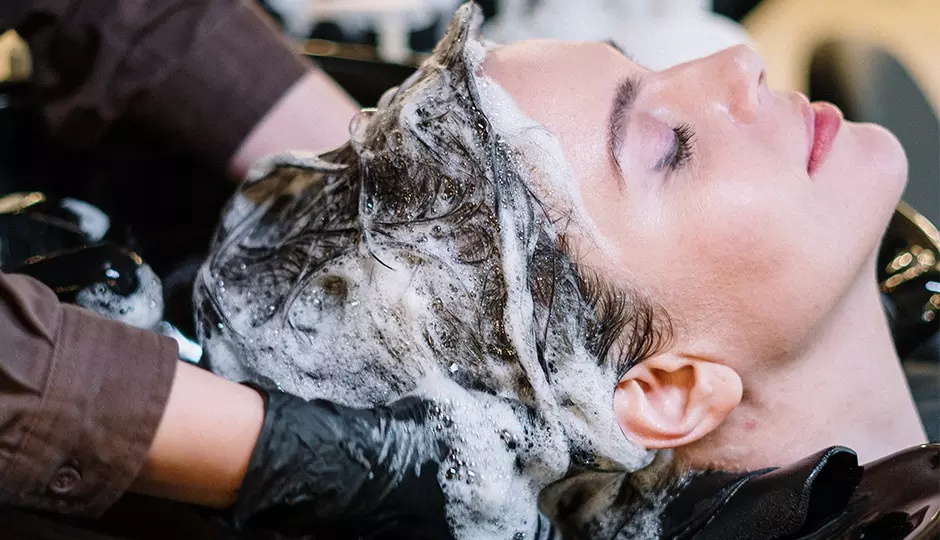While you may have heard that washing your hair every day can dry it out and cause damage, daily shampooing is routine for many people. But can washing your hair too often actually lead to thinning hair and hair loss in men and women? It is critical to understand how shampoos work and what they do to answer this question.
What is Shampoo And How Does It Clean Your Hair?
All shampoos are basically a mild detergent formulated to remove oil and dirt from your scalp and hair. Sebum, the natural oil manufactured by your scalp to help keep your hair moisturized and strong, can also build up, attracting dirt, dead skin cells, and product residue to the excess oil. The detergent ingredients in shampoo remove dirt and contaminants from your hair by stripping away the natural oils.
Excess oil, dirt, and other contaminants can build up on your scalp, clogging hair follicles, weakening them, and undermining their ability to produce healthy strands of hair. While dust, dirt, and hair product buildup can damage the hair follicle, your hair needs some natural oils to protect it from damage and keep it healthy. Unfortunately, shampoos strip away both oily buildups and the good oils your hair needs to maintain its health.
While the main active ingredient in all shampoos is a cleanser, manufacturers also add various additives and ingredients formulated for certain types of hair or hair treatments and aesthetic reasons. Many, such as fragrance, color, or foaming agents to create a thick lather, are included solely to enhance your hair washing experience.
Over the years, an increasing number of ingredients such as silicones, conditioners, thickeners, and pearlizing agents have been added to shampoos. These additives don't affect the shampoo's effectiveness at removing dirt and oil but are designed to coat the hair shaft and scalp. Many of these additives effectively smooth the hair, increase shine, or reduce frizz by leaving this coating behind.
In some instances, they can also cause issues. These film-forming ingredients are hard to rinse off and can clog hair follicles, disrupting the hair growth cycle and inhibiting new hair growth. Some shampoos formulated primarily for conditioning effects, rather than cleansing, can be even more damaging due to the higher ratio of these ingredients.
How Often Should You Wash Your Hair?
While the amount of natural oil produced is different for everyone, for most people washing their hair two to three times per week is adequate. Typically, thicker hair requires less frequent washing, but in the summer, periods of high humidity, or if you lead an active lifestyle, more frequent washings may be necessary. If you have longer hair, wearing a protective hairstyle such as French braids can lengthen the time you can go without shampooing.
As important as how often you wash your hair is the type of shampoo that you choose. Shampoos with additives that coat the hair and scalp, or those with harsh detergents and foaming agents, can sometimes damage the hair follicles and hair shafts, leading to thinning hair and hair loss.
Contact Mane Image
So, can washing your hair too often cause your hair to thin? While not a direct cause of thinning hair, frequent shampooing can cause or worsen thinning hair for men and women. Not only can some shampoo products cause damage if used too often, but the process of washing your hair itself can also cause damage. When your hair is wet, it is weakest, and rough drying or brushing tangles before it dries can also lead to thinning hair.
Thinning hair and hair loss can be a complicated issue with more than one underlying cause. If you are concerned about thinning hair, the first step is to determine the cause and any contributing factors. At Mane Image Hair Restoration Center, we are experts in all areas of haircare and can help determine the cause of your thinning hair and recommend proven treatments to help. To learn more about thinning hair causes and the different treatment options we have available for men and women, contact us today and schedule your FREE initial consultation.











